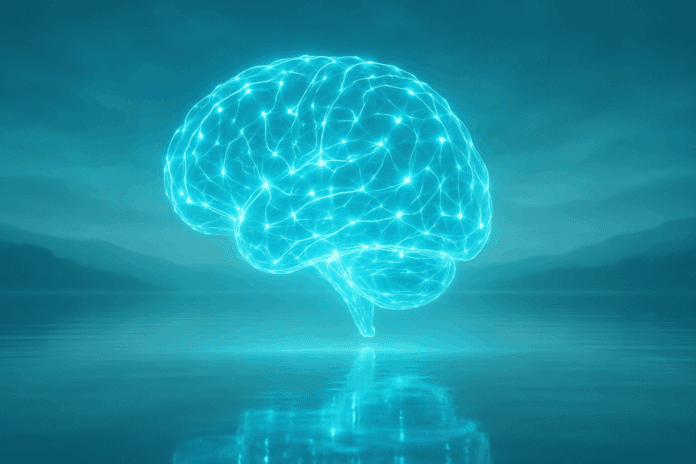Understanding the Cognitive Process: Definition and Scope
Cognition refers to the complex set of mental functions that allows us to perceive, process, store, and use information. These processes are foundational to human intelligence, influencing everything from memory and language to decision-making and emotional regulation. To explore this topic with clarity, we begin with the cognitive process definition: it is the dynamic interplay of mental operations that facilitate learning, understanding, problem-solving, and adapting to our environment. These mechanisms include attention, perception, memory, language, and executive functions, all of which work in tandem to produce coherent thought and behavior.
The term “cognitive process” is often used in academic and clinical settings to describe both the underlying neurological mechanisms and the observable manifestations of thought. From a psychological perspective, the study of cognition includes experimental assessments, behavioral observations, and neuroimaging techniques that reveal how different brain regions contribute to various mental tasks. For example, when a person recalls a childhood memory, the hippocampus engages in memory retrieval while the prefrontal cortex assists with contextualization and decision-making based on that memory.
This multi-faceted framework makes it easier to understand why disruptions in cognitive function can have far-reaching implications. Whether due to trauma, neurological illness, or chronic stress, impairments in these processes often lead to measurable changes in mental health. The bridge between brain function and emotional well-being becomes clearer when we appreciate how tightly interwoven these systems truly are. Understanding what the cognitive process is provides a foundational lens through which we can examine the broader landscape of mental health.
You may also like: Boost Brain Power Naturally: Evidence-Based Cognitive Training Activities and Memory Exercises That Support Long-Term Mental Health
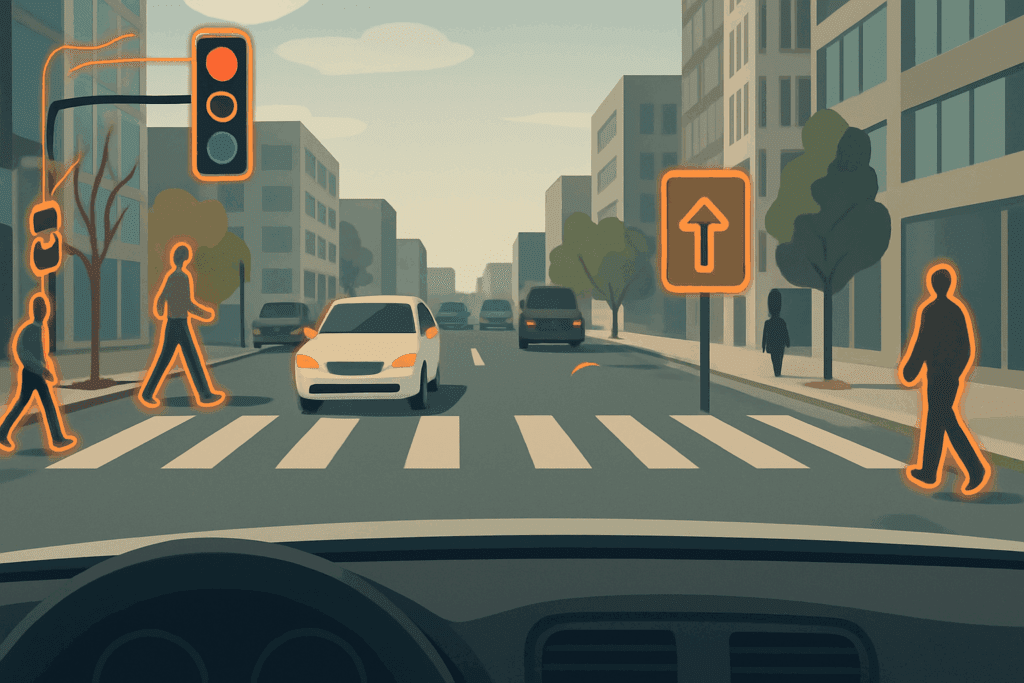
Examples of Cognition in Daily Life
To bring this concept into sharper focus, it’s helpful to explore everyday examples of cognition and how they manifest in real-world contexts. Consider the act of driving a car through busy city traffic. This seemingly routine activity demands sustained attention, visual-spatial awareness, short-term memory recall, language processing for interpreting signs, and rapid decision-making—all in a coordinated sequence. This scenario showcases multiple cognitive processes in action, illustrating how they operate in synergy.
Another striking example lies in social interaction. Holding a conversation involves decoding non-verbal cues, recalling previous discussions, interpreting tone and context, and formulating appropriate responses. These functions require sophisticated cognitive engagement and are essential for maintaining interpersonal relationships. In individuals with social anxiety or autism spectrum disorders, specific breakdowns in these cognitive domains can impair communication and emotional connection, thereby impacting mental health.
Workplace performance also provides countless cognitive processes examples. Strategic planning, problem-solving, multitasking, and adaptability are highly valued cognitive skills in most professional settings. When these processes falter—due to burnout, sleep deprivation, or mood disorders—productivity and emotional resilience decline. Through such examples, we see how cognition is not confined to academic theory but actively shapes our ability to function, connect, and thrive.
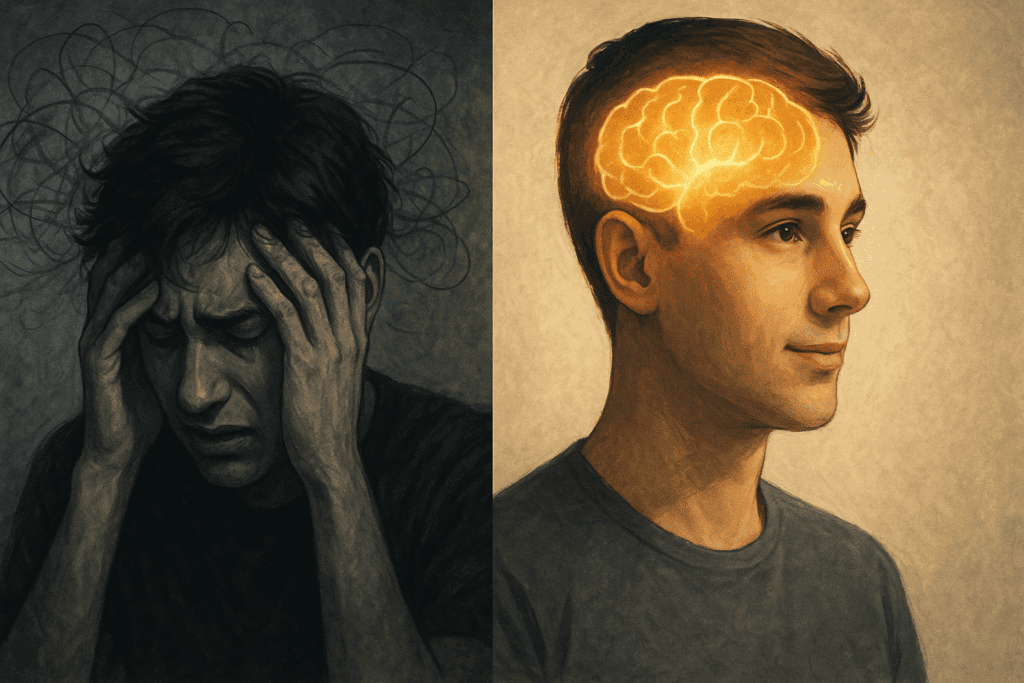
How Cognitive Processes Influence Mental Health
A growing body of research supports the notion that cognitive processes and mental health are deeply intertwined. Mental health disorders often reflect alterations or dysfunctions in one or more cognitive domains. For instance, individuals with depression frequently report difficulties with concentration, memory recall, and decision-making. These challenges are not merely psychological—they often have a neurobiological basis involving reduced activity in the prefrontal cortex and dysregulated neurotransmitter systems.
Anxiety disorders similarly affect cognition, particularly in areas of attention and executive function. Individuals may experience racing thoughts, an inability to focus, and heightened sensitivity to perceived threats. These symptoms can make everyday tasks overwhelming, reinforcing the cycle of anxiety. In more severe cases, such as post-traumatic stress disorder (PTSD), cognitive distortions—irrational beliefs about oneself or the world—can lead to chronic emotional distress.
Understanding the mechanisms behind these phenomena allows for more effective intervention strategies. Cognitive-behavioral therapy (CBT), one of the most evidence-based treatments for mental health disorders, operates by targeting dysfunctional thought patterns and replacing them with more adaptive alternatives. This approach underscores the foundational role cognition plays in shaping emotional outcomes. By appreciating how examples of cognition map onto mental health experiences, clinicians can tailor interventions that address both surface symptoms and underlying cognitive dysfunction.
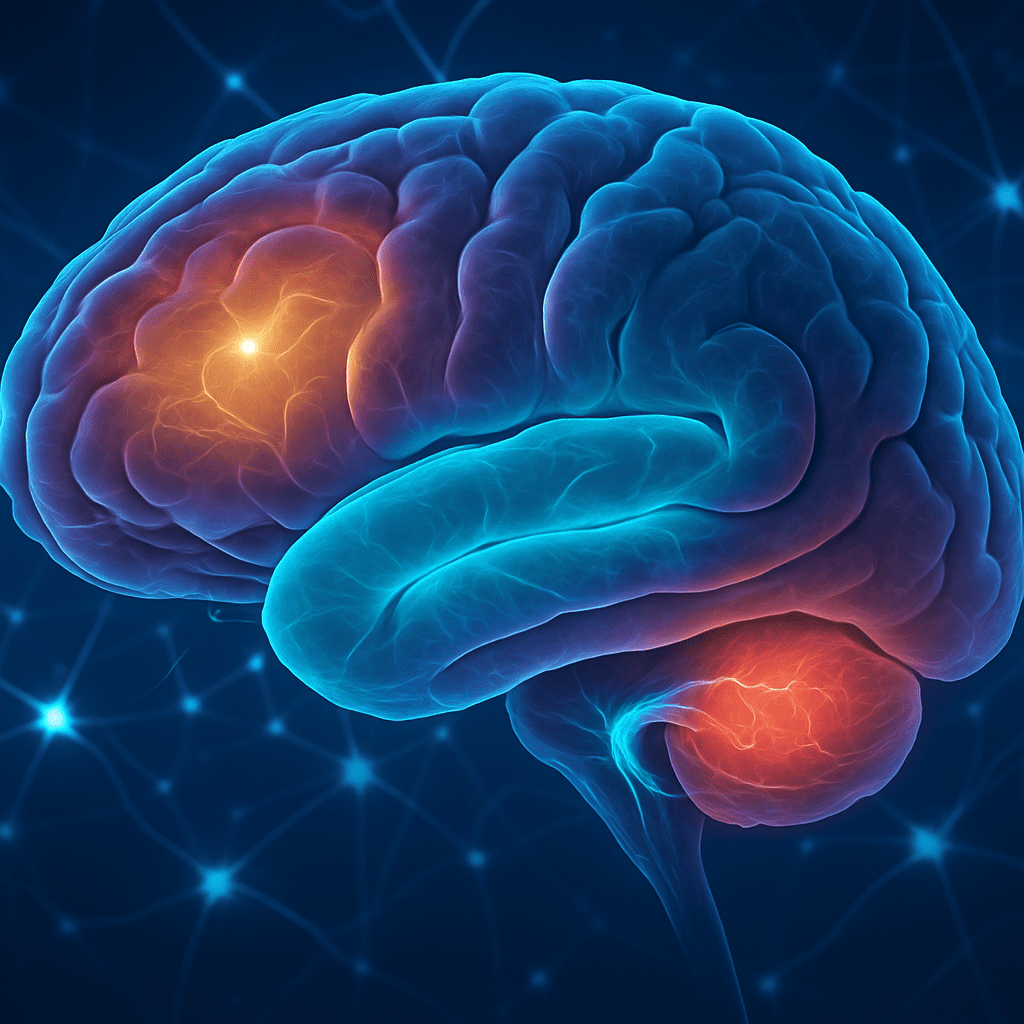
Neuroscience Behind the Cognitive Process
To further grasp what the cognitive process is, it’s essential to examine the neurological structures that support it. The brain is composed of highly specialized regions that work together to facilitate cognitive functions. The prefrontal cortex governs executive functions such as planning, inhibition, and flexible thinking. The hippocampus is central to memory formation and retrieval, while the amygdala modulates emotional salience and threat detection.
Neuroimaging studies have demonstrated how these areas activate during different cognitive tasks. Functional MRI (fMRI) scans reveal that working memory engages both the dorsolateral prefrontal cortex and parietal lobes, highlighting the distributed nature of cognitive networks. In disorders such as schizophrenia, altered connectivity between these regions can lead to impaired executive function and hallucinations—hallmarks of cognitive disintegration.
Neuroplasticity, or the brain’s ability to reorganize itself, plays a pivotal role in shaping cognitive outcomes. Environmental enrichment, therapeutic interventions, and even mindfulness practices can alter synaptic connections and improve cognitive performance. This adaptability is crucial for recovery from trauma and mental illness. Advances in cognitive neuroscience continue to shed light on the interplay between structure and function, offering novel insights into the biological substrates of mental health.
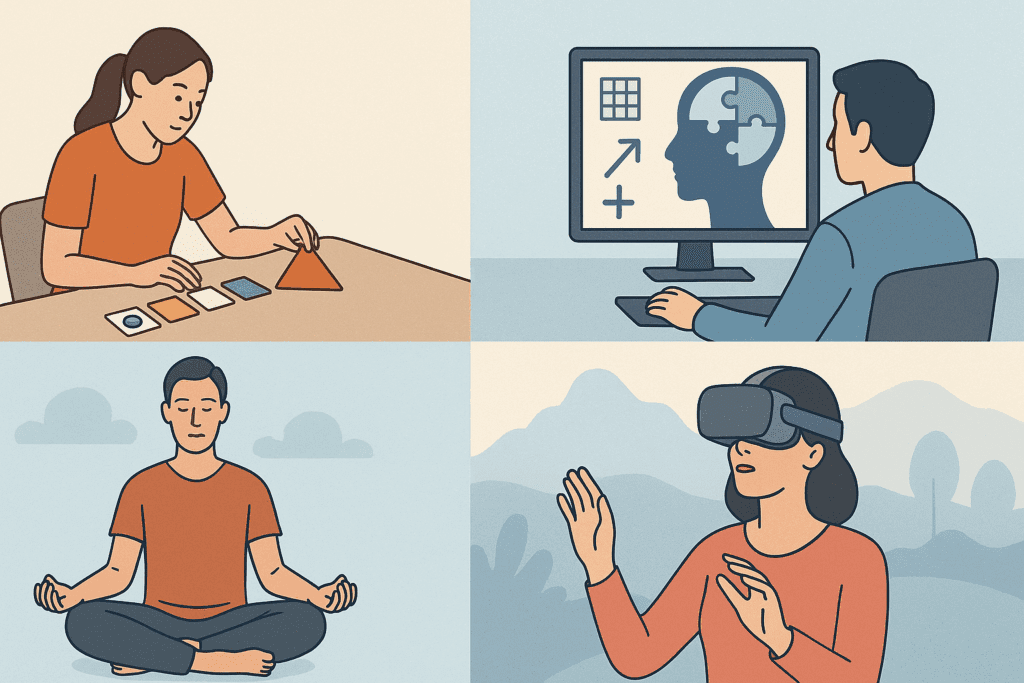
Real-Life Applications of Cognitive Science in Mental Health Treatment
Beyond theory, the practical applications of cognitive science have revolutionized mental health care. Cognitive remediation therapy (CRT) is one such example, designed to improve cognitive skills in individuals with psychiatric disorders. Originally developed for schizophrenia, CRT focuses on enhancing attention, memory, and problem-solving abilities through targeted exercises and strategies. Results show that patients not only experience cognitive gains but also improvements in social functioning and quality of life.
Another widely used intervention is cognitive training software, which leverages gamified tasks to bolster memory, processing speed, and focus. While not a substitute for clinical treatment, these tools offer a supplementary avenue for enhancing mental fitness. Emerging technologies such as virtual reality and neurofeedback also hold promise in modulating cognitive functions and promoting emotional resilience.
Lifestyle interventions further reinforce the connection between cognition and mental health. Physical exercise, for instance, boosts neurogenesis in the hippocampus and improves executive function. Nutrition also plays a role, as omega-3 fatty acids, antioxidants, and B-vitamins have been linked to better cognitive outcomes. Sleep hygiene, too, is critical; chronic sleep deprivation undermines memory consolidation and emotional regulation, exacerbating mental health issues.
Educational and Workplace Implications of Cognitive Health
In both academic and professional settings, understanding the cognitive process definition has profound implications. Students with learning disabilities often struggle with specific cognitive functions such as working memory or language processing. Identifying these deficits early enables educators to implement individualized support plans that foster academic success and emotional well-being.
Similarly, workplace environments that demand constant multitasking and high cognitive load can contribute to mental fatigue and burnout. Employers who recognize the role of cognitive processes in employee performance are better positioned to create supportive infrastructures. Flexible work hours, task variety, and mental health days can protect against cognitive overload and sustain long-term productivity.
Training programs that focus on cognitive skill development—such as mindfulness, stress management, and metacognition—equip individuals with tools to navigate complex challenges. These initiatives promote not only mental clarity but also resilience, creativity, and interpersonal effectiveness. As the boundaries between mental health and cognitive science continue to blur, the need for cognitively informed practices in education and work grows increasingly urgent.
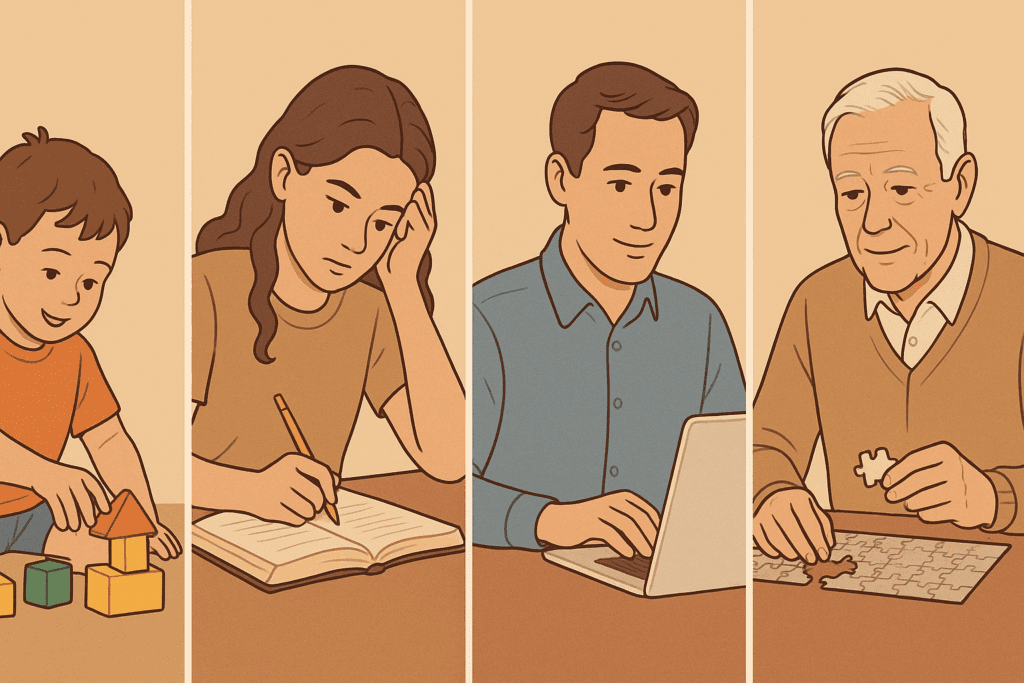
Cognitive Development Across the Lifespan
Cognitive abilities are not static—they evolve throughout the human lifespan, shaped by both biological and environmental factors. In childhood, rapid brain development supports foundational cognitive processes such as language acquisition, emotional regulation, and problem-solving. Early experiences, including caregiver interaction and educational exposure, significantly influence these trajectories.
During adolescence, the prefrontal cortex undergoes extensive remodeling, facilitating more complex reasoning and impulse control. However, this period is also marked by heightened vulnerability to mental health disorders, particularly mood and anxiety conditions. Understanding the cognitive underpinnings of adolescent behavior can inform interventions that promote resilience and reduce risk.
In adulthood, cognitive performance typically stabilizes, although individual variation is significant. Lifestyle choices, career demands, and emotional health continue to interact with cognitive processes, affecting overall well-being. In later life, cognitive decline becomes a pressing concern, with conditions such as mild cognitive impairment and dementia posing challenges to independence and mental health. Preventative strategies—ranging from intellectual engagement to social activity—can delay or mitigate these effects.
The Role of Emotional Regulation and Cognitive Control
At the heart of many mental health interventions lies the ability to regulate emotion and exert cognitive control. These functions are essential for managing stress, resolving conflict, and maintaining a balanced perspective. Emotional regulation relies on both bottom-up processes, such as instinctual responses to stimuli, and top-down control mechanisms orchestrated by the prefrontal cortex.
Cognitive control, or executive function, enables us to override automatic responses and choose goal-directed behavior. When these systems function optimally, individuals can navigate emotional upheaval with clarity and resilience. However, in conditions such as borderline personality disorder or bipolar disorder, dysregulation of these processes leads to impulsivity, mood swings, and interpersonal difficulties.
Training in cognitive control and emotional awareness can dramatically improve mental health outcomes. Mindfulness-based stress reduction (MBSR), dialectical behavior therapy (DBT), and other structured programs teach individuals to observe their thoughts without judgment, identify cognitive distortions, and develop healthier coping strategies. These techniques underscore the inseparability of cognition and emotion in shaping psychological well-being.
Building a Sharper Mind Through Cognitive Enhancement
The desire to sharpen cognitive function extends beyond clinical populations, as many seek ways to optimize mental performance in daily life. Cognitive enhancement strategies include a combination of mental, physical, and lifestyle interventions. Practices such as meditation, aerobic exercise, and strategic learning not only enhance specific cognitive domains but also promote emotional stability and stress resilience.
Emerging evidence supports the use of nootropic supplements and brain training to augment cognitive abilities, although caution is warranted regarding efficacy and safety. More promising are integrative approaches that align with long-term brain health. Activities like learning a new language, playing a musical instrument, or engaging in complex problem-solving provide cognitive stimulation while offering emotional enrichment.
Ultimately, fostering a sharper mind is not about achieving perfection but cultivating awareness and adaptability. It involves recognizing one’s cognitive strengths and weaknesses, setting realistic goals, and practicing self-compassion in the face of challenges. This mindset nurtures both mental acuity and emotional intelligence, reinforcing the synergy between cognition and mental health.
Frequently Asked Questions (FAQ): How the Cognitive Process Shapes Mental Health
1. How can cognitive processes be intentionally improved to support mental health?
Cognitive processes are not fixed; they can be shaped and improved through specific, intentional strategies. While many are familiar with the basics of brain training games or memory exercises, deeper techniques such as metacognitive training and neurofeedback offer more sophisticated ways to enhance cognition. Metacognitive training, for example, encourages individuals to reflect on their thought patterns and learn how their own biases influence decision-making and behavior. This type of self-awareness is especially useful for individuals experiencing anxiety or depression, where negative automatic thoughts can distort perception. Incorporating lifestyle adjustments—such as consistent aerobic exercise, structured sleep hygiene, and a Mediterranean-style diet—has also been linked to improved cognitive flexibility and emotional balance. Exploring real-world cognitive processes examples, like using mental visualization techniques before public speaking, or applying dual n-back tasks to enhance working memory, gives a practical lens to the abstract concept. These examples of cognition extend beyond rote memorization and into adaptive thinking under stress. Finally, community-based programs offering cognitive behavioral coaching or executive function skill development for teens and adults are gaining popularity, particularly for populations dealing with ADHD or trauma recovery. By applying the cognitive process definition within a structured context, these interventions demonstrate how everyday actions can reinforce and retrain the brain. As understanding of neuroplasticity grows, so does the toolkit for anyone seeking to intentionally boost their cognitive capabilities in support of long-term mental wellness. Engaging in meaningful activities that challenge the brain—like learning an instrument, mastering a new language, or tackling complex puzzles—offers sustained benefits that support the entire spectrum of mental health.
2. Are there cultural differences in how cognitive processes affect mental health outcomes?
Absolutely. Culture plays a significant role in shaping how individuals experience, interpret, and express cognitive and emotional phenomena. What might be considered a cognitive distortion in one society could be viewed as a culturally acceptable belief in another. This makes it important for clinicians and educators to contextualize the cognitive process definition through a culturally sensitive lens. For instance, collectivist cultures may place greater value on group harmony and interdependence, which alters how memory, attention, and decision-making are expressed in social contexts. In contrast, individualistic cultures may emphasize autonomy and personal achievement, thus shaping different motivational cognitive processes. These variations influence not only how symptoms of mental health conditions manifest, but also how people seek treatment and define well-being. Furthermore, bilingual individuals may experience a unique cognitive profile; switching between languages engages different neural pathways and can enhance executive function, cognitive flexibility, and emotional regulation. When analyzing cognitive processes examples across different populations, it’s clear that societal norms, educational systems, and even language structures can rewire cognitive development in profound ways. This makes culturally attuned mental health care not only ethical but necessary for efficacy. Educators and mental health professionals working with diverse populations must consider how implicit cultural beliefs shape cognition itself—from memory encoding to emotional labeling. Therefore, understanding what is the cognitive process in one cultural context may look quite different in another, requiring nuanced approaches to therapy and educational interventions. Ultimately, appreciating cultural variability deepens our comprehension of cognition and enriches the methods used to support mental health globally.
3. How do hormonal changes influence cognitive processes and mental health across the lifespan?
Hormonal fluctuations exert a powerful, yet often overlooked, influence on cognitive processes and emotional well-being. These biological shifts occur throughout the lifespan, from adolescence through menopause and andropause, and they can profoundly affect how individuals think, process emotions, and maintain mental stability. For instance, rising estrogen levels during puberty and pregnancy are associated with enhanced verbal memory and social cognition, while abrupt hormonal changes in postpartum and menopausal phases may result in memory lapses, attention difficulties, and mood instability. In men, fluctuations in testosterone levels have been correlated with changes in spatial cognition, impulsivity, and motivation, demonstrating that hormonal balance is intricately linked to the brain’s cognitive circuitry. Examining cognitive processes examples within these transitional periods offers insights into how hormone-driven neurobiological changes can mimic or amplify symptoms of anxiety or depression. This is particularly important for distinguishing between psychiatric disorders and hormonally induced cognitive variations. Understanding the cognitive process definition in these contexts helps clinicians better tailor interventions to hormonal life stages. Bioidentical hormone replacement therapy, mindfulness-based cognitive therapy, and targeted nutritional support have all shown promise in helping individuals navigate hormone-related cognitive shifts. Furthermore, tracking these hormonal-cognitive connections offers a preventative framework for identifying those at risk for mood disorders or cognitive decline. Adding to the complexity, hormonal sensitivity can vary widely between individuals, which is why personalized assessments are increasingly emphasized in neuroendocrinology. When we examine what is the cognitive process during hormonal transitions, we open new possibilities for integrative mental health strategies that combine medical, psychological, and lifestyle interventions.
4. Can technology overstimulation impair healthy cognitive processing?
Yes, excessive use of digital technology, particularly when unstructured or multitasked, can impair several cognitive domains and contribute to mental health challenges. Continuous exposure to rapid streams of information from social media, notifications, and digital multitasking can overload working memory, reduce attention span, and impair executive function. These disruptions are particularly concerning during developmental periods, such as adolescence, when neural circuits related to attention and impulse control are still maturing. Emerging research on digital cognition highlights that the brain’s reward system is hijacked by the dopamine spikes associated with constant online engagement, creating a feedback loop that prioritizes novelty over sustained attention. Looking at cognitive processes examples, it’s clear that the shift from deep focus to habitual scanning alters the brain’s natural rhythms, making it harder to engage in reflective thinking or long-term planning. Some experts argue that what is the cognitive process today is being reshaped by how we interact with screens—our brains are adapting to prioritize speed over depth. While technology offers tools for learning and connection, its overuse can distort the very mechanisms we rely on for emotional regulation and meaningful cognition. Fortunately, interventions such as digital detoxes, mindfulness apps, and the use of focus-enhancing strategies like the Pomodoro Technique can help restore cognitive equilibrium. Integrating these tools allows users to balance stimulation and reflection, reinforcing healthier mental habits. Recognizing the interplay between digital environments and cognitive health prompts a broader reconsideration of how technology is designed, marketed, and integrated into educational and therapeutic settings.
5. How do traumatic experiences alter cognitive development and perception?
Trauma has a profound effect on cognitive development and long-term perception, especially when experienced during formative years. Traumatic events alter the architecture of the brain, particularly the hippocampus, amygdala, and prefrontal cortex—regions critical for memory, emotion regulation, and decision-making. These changes can result in hypervigilance, emotional numbing, memory fragmentation, and difficulty concentrating—manifestations that are common in post-traumatic stress disorder (PTSD). Exploring trauma through the lens of cognitive processes examples reveals how seemingly unrelated issues like forgetfulness or indecisiveness are rooted in neurobiological responses to past threats. For children, adverse childhood experiences (ACEs) may permanently impact cognitive trajectory, influencing learning abilities and stress coping mechanisms well into adulthood. What is the cognitive process in someone with complex trauma often includes intrusive memories and distorted threat perception, which significantly impair emotional resilience and social functioning. Importantly, neuroplasticity allows for healing when trauma-informed cognitive interventions—such as EMDR (Eye Movement Desensitization and Reprocessing) or trauma-focused CBT—are properly implemented. These therapies help reprocess traumatic memories and rewire neural pathways, allowing for the reintegration of fragmented experiences. Cognitive process definition must also evolve to encompass not just functional thinking, but the ways in which memory and perception are reshaped by emotional wounds. This highlights the need for trauma-sensitive approaches in both educational and clinical settings, ensuring that cognitive rehabilitation is not just about skill recovery but also about emotional integration. Understanding how trauma reshapes cognition opens the door for more compassionate, effective interventions that address both neurological and psychological dimensions.
6. What role do cognitive processes play in shaping moral and ethical reasoning?
Moral and ethical decision-making involves a sophisticated interplay of cognitive processes such as abstract reasoning, perspective-taking, and emotional regulation. Unlike simple logic or factual recall, moral cognition requires the integration of empathy, long-term consequence evaluation, and social context awareness. The prefrontal cortex and temporoparietal junction are two key brain areas implicated in this form of higher-order cognition. Examining cognitive processes examples in this domain—such as navigating ethical dilemmas at work or choosing between personal gain and communal benefit—reveals how our values are not solely based on upbringing or socialization but also on the mental architecture supporting reasoning and foresight. Examples of cognition at work in ethical contexts also include weighing fairness in resource distribution or managing conflicts with colleagues in high-stress environments. Interestingly, individuals with damage to certain brain areas may retain general intelligence but struggle with moral judgment, highlighting the specificity of these cognitive functions. Understanding the cognitive process definition in the context of ethics allows psychologists and philosophers alike to explore how moral reasoning evolves with age, education, and experience. Advanced neuroethical studies suggest that cultural upbringing, life experiences, and even meditation practices can shape how we morally evaluate situations. As society faces increasingly complex ethical challenges—from AI to climate policy—the ability to foster ethical cognition becomes not only a personal asset but a societal necessity. By examining what is the cognitive process behind moral reflection, we gain new insights into how cognitive health contributes to justice, cooperation, and shared humanity.
7. How does sleep quality impact the brain’s cognitive functions and emotional balance?
Sleep is a biological necessity that plays a central role in preserving and optimizing cognitive function and emotional well-being. During deep sleep and REM cycles, the brain consolidates memories, processes emotions, and clears metabolic waste that accumulates during wakefulness. Poor sleep quality—whether from insomnia, sleep apnea, or erratic schedules—disrupts these critical functions and impairs executive processes like attention regulation, judgment, and emotional control. Cognitive processes examples that illustrate sleep’s importance include the ability to solve problems creatively after a good night’s rest or the experience of brain fog following chronic sleep deprivation. Not only does insufficient sleep impair memory retention and learning, but it also elevates stress hormones such as cortisol, which further disrupts emotional regulation and cognitive clarity. Understanding what is the cognitive process during sleep reveals how specific brain regions—like the hippocampus and prefrontal cortex—remain active and engaged in critical internal tasks, even while the body rests. Sleep’s influence extends beyond just memory; it also recalibrates the emotional brain, helping individuals respond with greater patience and emotional resilience. People who regularly practice good sleep hygiene often report clearer thinking, more stable moods, and greater adaptability in stressful situations. The cognitive process definition must therefore include not only waking functions but also the essential mental restoration that occurs during sleep. For those struggling with mental health conditions, prioritizing sleep becomes an indispensable part of therapeutic care. In short, sleep is not a passive state but an active and vital process for maintaining the integrity of cognition and emotional equilibrium.
8. Are there specific cognitive strategies that enhance resilience under chronic stress?
Resilience is often viewed as a personality trait, but in reality, it can be cultivated through specific cognitive strategies that reshape how individuals perceive and respond to stress. Techniques such as cognitive reappraisal—where one reframes a stressful situation to see potential opportunities or alternative outcomes—are highly effective in building mental toughness. Another useful method is attentional control training, which teaches individuals to redirect focus away from distressing thoughts and toward task-relevant stimuli. These approaches activate brain regions associated with executive function, such as the dorsolateral prefrontal cortex, enhancing one’s ability to manage emotion and maintain performance under pressure. When viewed through cognitive process examples, resilience can be seen in how healthcare workers, during a crisis, maintain composure by mentally rehearsing scenarios or how athletes manage competition anxiety with self-talk routines. Examples of cognition that promote resilience also include journaling to gain perspective or creating visual mind maps to problem-solve overwhelming tasks. These strategies align with the cognitive process definition by demonstrating deliberate, structured mental operations designed to mitigate emotional volatility. Importantly, resilience-building practices often involve repeated exposure to manageable stressors, followed by cognitive reflection, which trains the brain to adapt. This process not only strengthens neural pathways for coping but also fosters a deeper sense of agency and self-efficacy. When we ask what is the cognitive process behind resilience, we uncover a series of internal adaptations that allow people to face adversity without crumbling. Cultivating such resilience requires time, effort, and intentional practice but yields long-term benefits for mental clarity and emotional health.
9. How do cognitive processes support creativity and innovative thinking?
Creativity is often romanticized as a flash of inspiration, but it is underpinned by intricate cognitive processes that involve both divergent and convergent thinking. Divergent thinking allows individuals to generate multiple ideas or solutions from a single stimulus, while convergent thinking helps refine those ideas into practical outcomes. These abilities rely on a healthy interplay between the default mode network (associated with mind-wandering and imagination) and executive control networks (linked to goal-directed thinking and evaluation). Examples of cognitive processes that highlight creative cognition include brainstorming sessions, improvisational performances, and designing a business strategy from scratch. What distinguishes these examples of cognition is their reliance on mental flexibility, associative thinking, and tolerance for ambiguity. Understanding the cognitive process behind creativity involves studying how memory, attention, and emotion interact to form novel connections. For instance, a composer might draw upon unrelated musical genres stored in memory to invent a new sound, or a scientist might connect disparate research findings into an original hypothesis. Creative cognition also benefits from incubation—periods of rest or distraction that allow unconscious processes to reorganize information in new ways. The cognitive process definition should thus include the capacity for synthesis, not just analysis. Enhancing creative potential involves practices such as lateral thinking puzzles, mindfulness, and even daydreaming—activities that create mental space for innovation. By fostering cognitive environments that support risk-taking and exploration, we empower both individuals and organizations to thrive in an era of rapid change and complexity.
10. What future directions are emerging in the study of cognitive processes and mental health?
The future of cognitive science and mental health lies in interdisciplinary integration, personalized interventions, and advanced technology. One major emerging area is the use of machine learning and artificial intelligence to map individual cognitive profiles and predict mental health outcomes. These technologies can analyze vast datasets from neuroimaging, behavioral tasks, and genetic testing to offer targeted cognitive-behavioral strategies tailored to each person’s strengths and vulnerabilities. Another promising field involves neuromodulation techniques such as transcranial magnetic stimulation (TMS) and transcranial direct current stimulation (tDCS), which non-invasively alter brain activity to enhance cognitive function and emotional regulation. Researchers are also investigating the microbiome-gut-brain axis and its influence on cognition, exploring how nutrition and gut health may play unexpected roles in shaping mental resilience. Exploring these new frontiers brings fresh interpretations to the cognitive process definition, expanding it beyond mental faculties to include physiological and environmental interdependencies. When reviewing cognitive process examples in experimental and applied contexts, it’s clear that future therapies will likely combine traditional psychological methods with biomedical innovations and digital tools. Additionally, ethical discussions are gaining prominence as cognitive enhancement becomes more accessible, prompting considerations of fairness, privacy, and consent. Understanding what is the cognitive process is in the future may require rethinking old paradigms and embracing a systems-level view of the mind. These evolving perspectives promise more precise, inclusive, and effective strategies for supporting mental health across diverse populations and life stages.
Conclusion: Embracing the Power of Cognitive Processes for Mental Clarity and Well-Being
Understanding what the cognitive process is—and how it functions in daily life—is a vital step toward promoting mental health and overall well-being. By examining cognitive process definition through real-life applications and neuroscience, we gain insight into how these invisible mechanisms shape our thoughts, behaviors, and emotional responses. From workplace performance to emotional regulation, the role of cognition is both pervasive and profound.
The numerous examples of cognition presented throughout this article highlight the intricate ways in which mental processes influence our ability to adapt, connect, and thrive. Whether it’s navigating social interactions, making critical decisions, or managing stress, cognitive processes are the foundation upon which mental wellness is built. When these processes are disrupted, the impact on mental health can be significant, but the inverse is also true—strengthening cognitive function can enhance emotional resilience and life satisfaction.
Ultimately, a deeper appreciation of cognitive processes enables us to move beyond symptom-based treatment models toward holistic, person-centered care. By leveraging the insights of cognitive science, we can craft more effective interventions, foster lifelong learning, and cultivate environments that support both intellectual and emotional growth. In doing so, we not only sharpen our minds but also enrich the very fabric of our daily lives.
Further Reading:
Cognitive Psychology: Surprising Approaches That Expand Your Mind
Cognitive Processes: What Exactly Are They And Why Do They Matter In Psychology?

